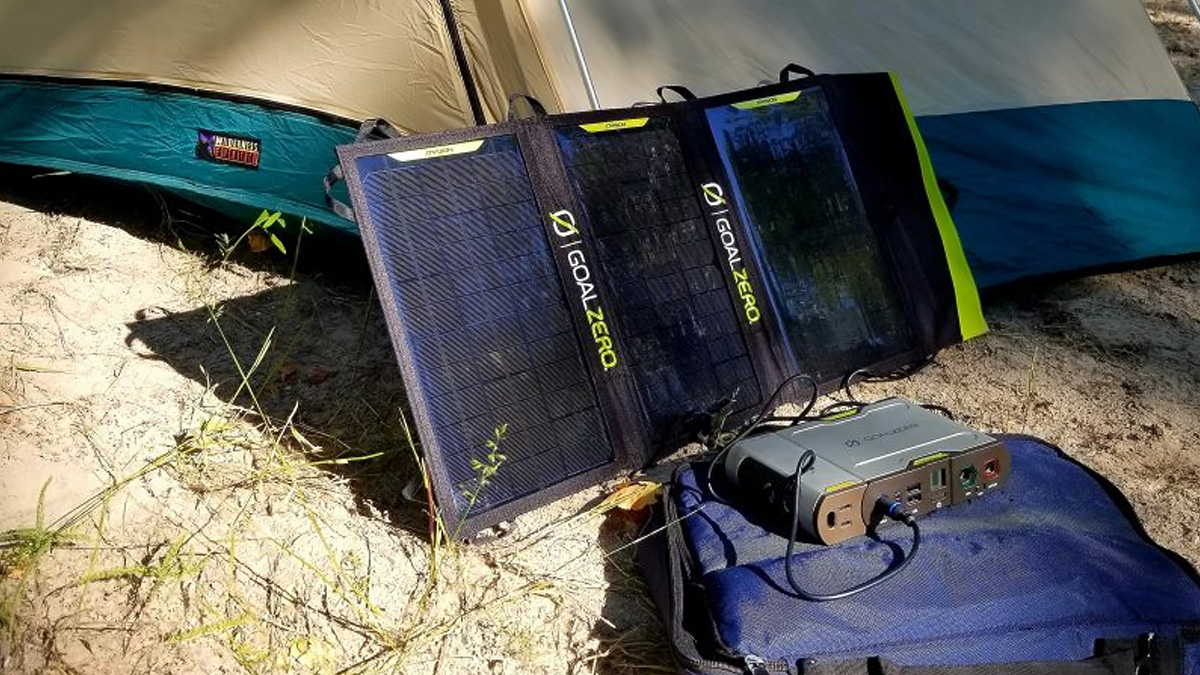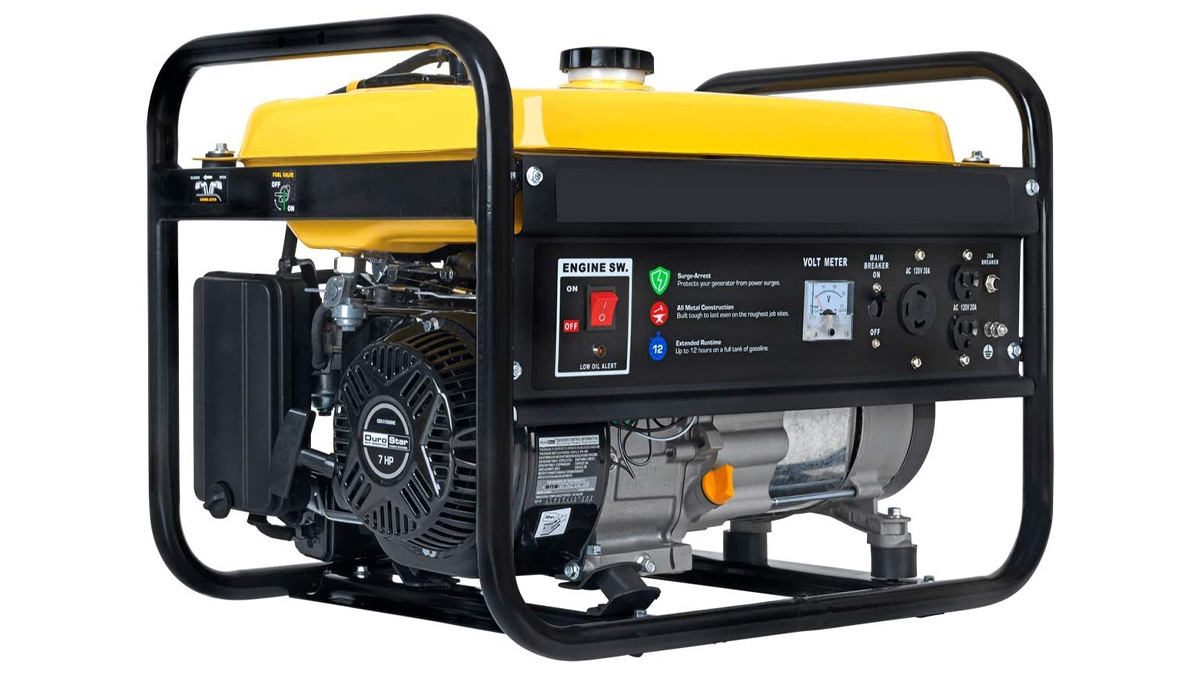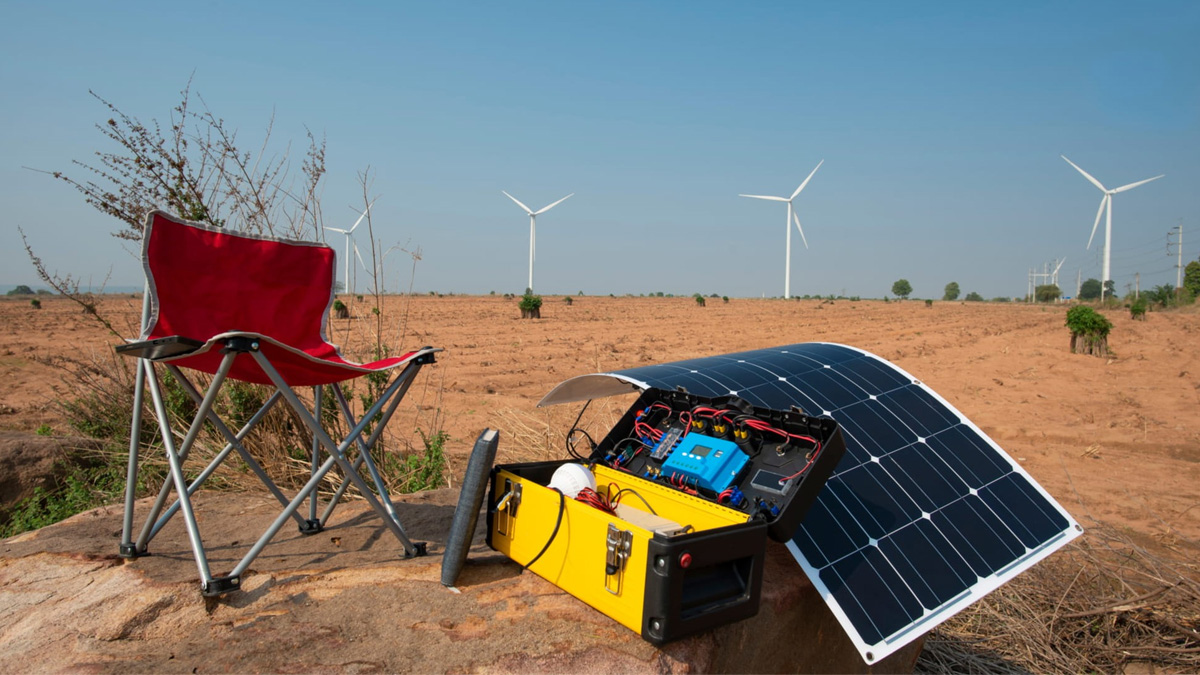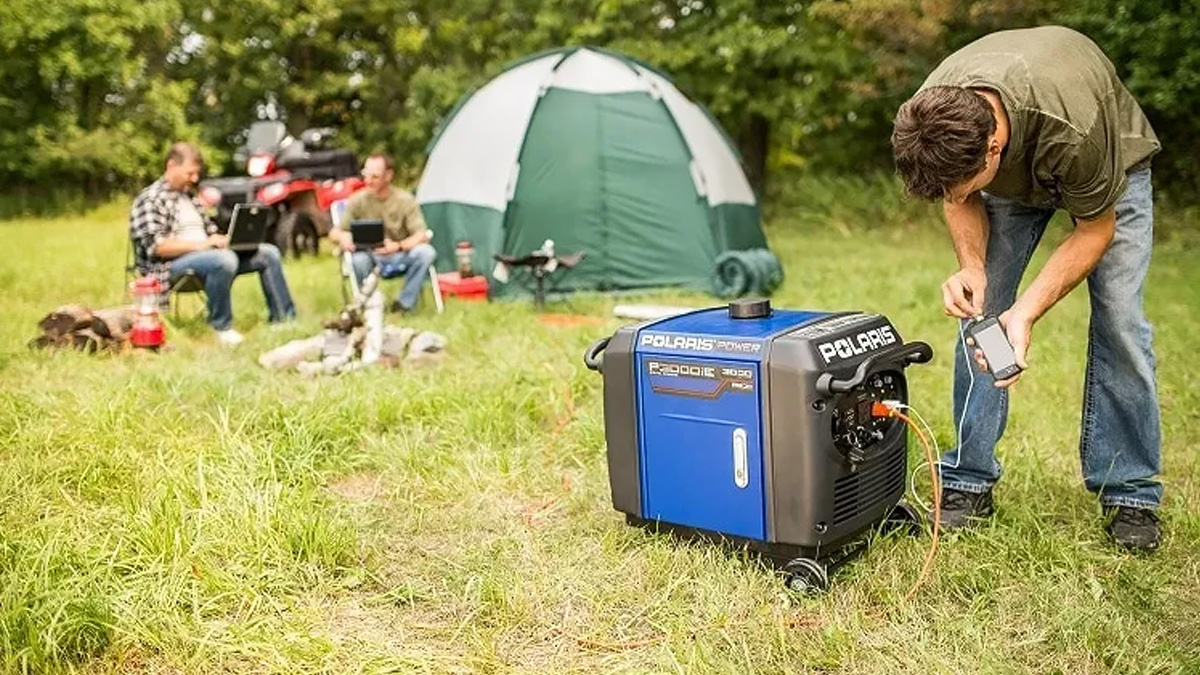on
Having a running generator of any type in a disaster or SHTF scenario can feel like you’ve won the lottery. However, there are pros and cons for each type.
Pros and cons of A Portable Solar Generator
Solar Pros
One of the biggest pros is that there is no sound. Being solar-electric, you can sleep well at night while your portable power station is pumping power.

They are also generally lighter than gas-powered generators. Electric generators’ main component is a battery, which takes up most of the weight. A portable solar-electric generator also has low maintenance. They are reliable in tough situations where they matter most.
The cost over time is much cheaper than a traditional gas generator. They don’t require fuel, which saves a lot of money.
Solar Cons
The power is not as consistent as gas generators are. With gas generators, all you have to do is add more fuel to the generator and it will keep going. With solar-electric ones, you have to charge it, and this could take some time to reboot, especially when there is heavy smoke or cloud cover blocking the sun.
Pros and cons of A Portable Gas Generator

Gas Pros
Gas generators will run regardless of weather (except in extreme cold when their fuel gels) as long as there is fuel.
They also have a lot of power and can energize a lot of necessary equipment in the home or on the road depending on the size of your generator.
Gas Cons
They can be quite noisy and their sound can draw unwanted attention from unfriendly people. They also have a lot of parts. If one part isn’t maintained, it could fail and require maintenance by a professional.
These generators also require more maintenance overtime to keep up with its internals, much like a car as stated before. Also, the cost is a major issue – with fuel costs over time and maintenance costs, there are a lot of added fees over time.
What size generator do you need?

Gas or solar generators are rated in different ways. You want to know the peak Amperage either can handle. For gas generators, you’re eyeing their Wattage (W) rating. Often, the Watts will be in the thousands so it’s expressed as Kilowatts (kW).
For solar generators, you’re looking for the Amp hour (Ah) rating, because the electricity generally comes out of a battery.
Amps, Amp-Hours, And Watts
- An Amp (A), or Ampere, is the unit of measure for electrical current. The electrical current is the rate of flow—how much can flow at once. To calculate the peak Amps you’ll need, find out the Amp rating of all the devices you’d want to run, add them up, and then look for an Amp rating that could run them all at once. The calculation looks like this: Item 1 Amps + Item 2 Amps + Item 3 Amps … = Total Amps
- An Amp hour is how much electricity can flow from the battery at a usable voltage, typically for a 20 hour period. You’ll often see it expressed as something like 100Ah. Divide that 100Ah by 20 hours. You’re left with 5A. The calculation looks like this: 100Ah ÷ 20h = 5A for 20 hours
- A Watt (W) is the unit of measure for the amount of work 1 Volt (V) of electricity at 1 Amp (A) can do per second. Here’s the calculation: 1 Volt x 1 Amp = 1 Watt
When considering Watts, be careful! Usually, the Wattage rating that you first see is how many running Watts the generator can handle. Some electrical devices have a starting Watt rating that’s much higher than its running Wattage. For example, a dishwasher may run at 1200W but require 3000W to start up. Make sure your gas generator can handle bursts like that.
How much power do you really need?
If you’re just trying to power a laptop and a phone, a full-blown solar or gas generator can be overkill. You may just need something like this new solar power bank from Ready Hour.
Just like there are small portable external battery packs for your phone, there are larger car battery-sized options that can power more. Or you can find panels built directly into flashlights that double as external battery packs. And there are combo solar/hand-cranked radios that allow you to charge a cell phone, have light and hear the radio.
There are many ways now to generate power at home or in the field.
Get access to premium content and more!





